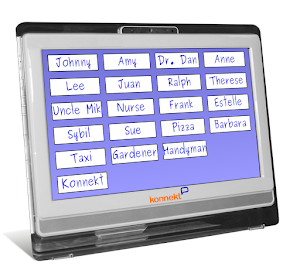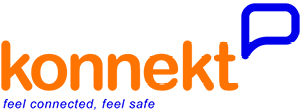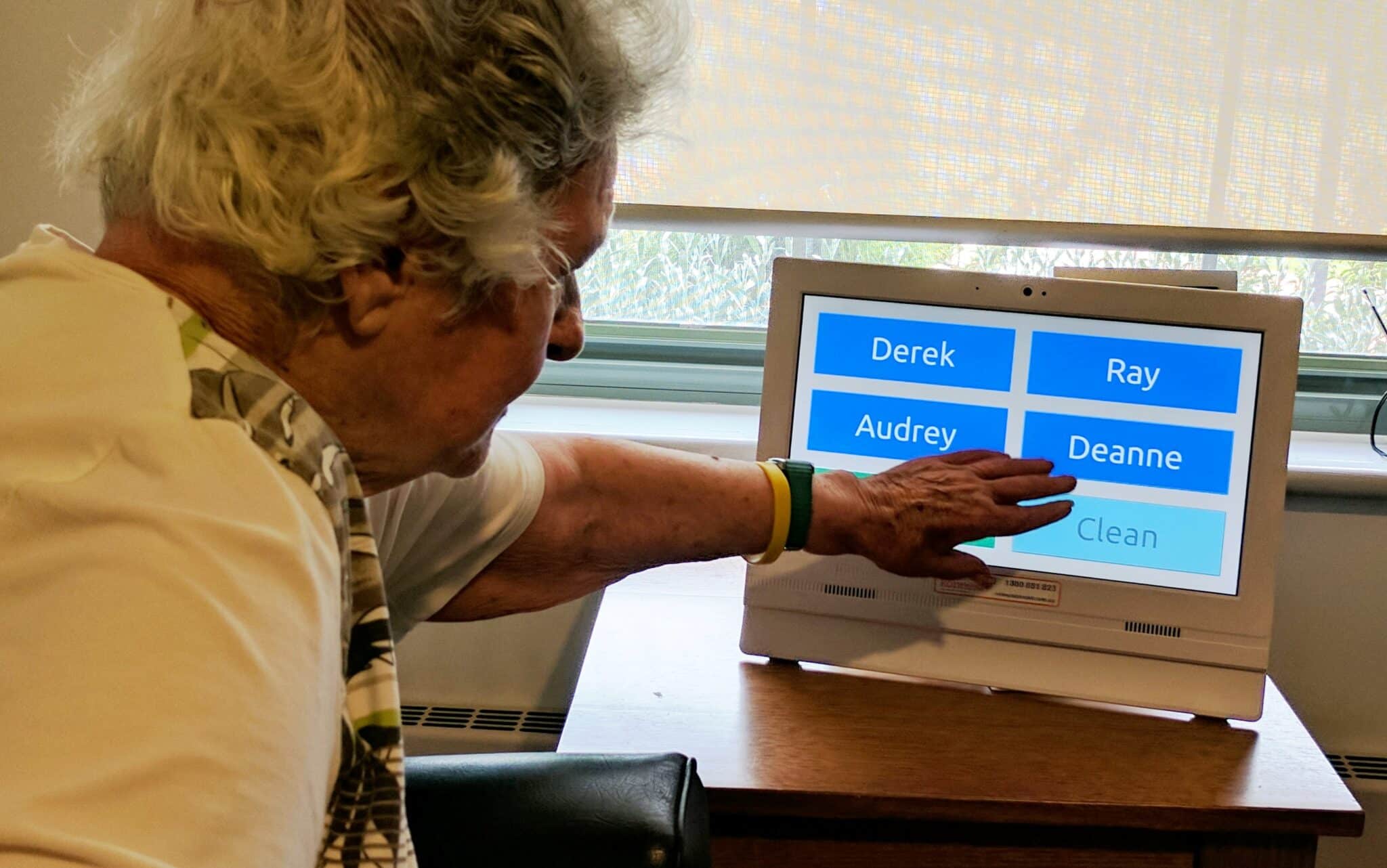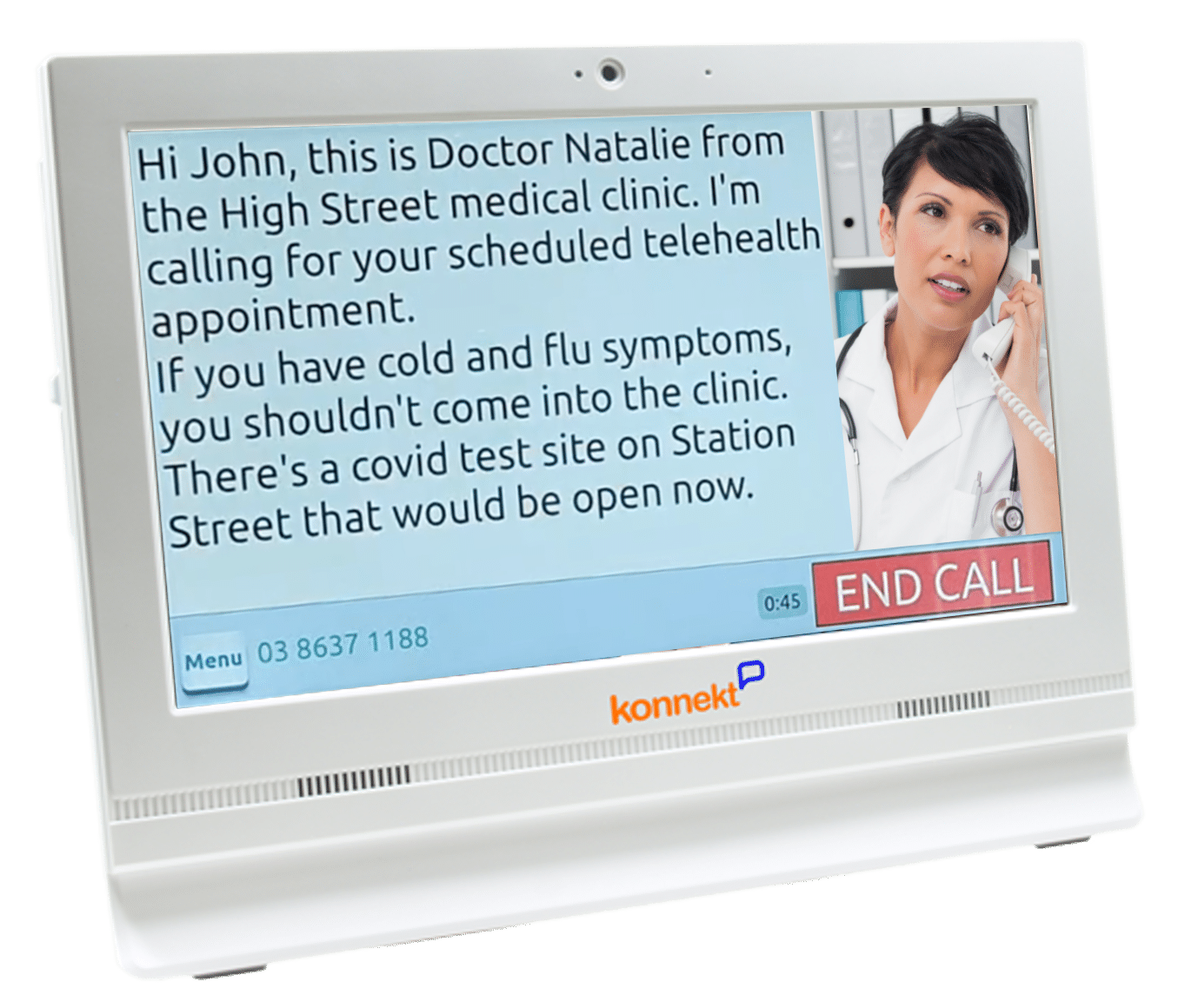Konnekt makes approved communication aids that are simple to use and designed for people who need extra support to stay in touch. Our devices are used in homes and aged care, and are often covered by government funding like NDIS and My Aged Care.
We offer two types of communication aids:
1. Face-to-Face Video Communication Aids
These are easy-to-use devices for talking face-to-face with family, friends, or carers — just by tapping a button.
Konnekt Videophone
- One-touch video calls with large buttons and clear sound. No confusing menus. We set it up for you.
Who it helps
- Older adults, people with dementia, stroke recovery, memory issues, or anyone who finds regular phones too hard.
What makes it great
- Big screen with clear pictures
- One-tap to call – no numbers to dial
- Family or carers can call in and be auto-answered (if needed)
- Works at home or in care
✔️ Eligible for NDIS, My Aged Care support, and more.

2. Captioned Phones for Hearing Loss
These phones show live captions (text) of what the other person is saying — perfect for people who are hard of hearing or use cochlear implants.
Konnekt Captioning Videophone
- Shows what’s being said during calls. Works for video and phone calls. Captions appear in real time on screen.
Who it helps
- People with hearing loss, especially those who find hearing aids or standard phones not enough.
What makes it great
- Live captions in English (and 100+ languages)
- Adjustable volume and text size
- One-touch call buttons
- Also blocks scam calls
✔️ Often recommended by audiologists
✔️ Funding available for NDIS, Konnekt-Telstra Program, and more.
Audiologists Say…
- “We recommend the Konnekt phone to our patients as it is extremely helpful to have the vision aid of the captioning and to be able to see the caller’s face when they have a hearing loss.” — Nick Modrovich, Audiologist / Director, Ability Hearing and Balance, TAS
- “Its large screen and straightforward user interface stand out in the market, making it incredibly easy for seniors to stay connected with family and friends. The simplicity of the Konnekt ensures that maintaining these important relationships is seamless and stress-free.” — Musthafa Mohammed, Audiologist and Director, Audience Hearing, NSW
Funding & Support
Konnekt’s communication aids are often paid for through:
- NDIS (Assistive Technology)
- My Aged Care (Home Care Packages, CHSP)
- DVA Rehabilitation Appliances Program (Department of Veterans’ Affairs)
- State and charity loan programs
- International programs (in NZ, US, UK and more)
IMPORTANT: We help with quotes and paperwork.
Need Help Choosing?
We’re here to help. If you’re caring for a family member or client, or just want to stay connected, contact us. We’ll recommend the best option and guide you through setup and funding.
For Healthcare Professionals: Why Choose Us?

Loneliness & Social Isolation
- Lack of face-to-face contact with family and friends three or more times per week doubles the risk of depression
- Verbal-only contact or interactions with staff and strangers show no measurable benefit
- Social isolation is linked to reduced function, heart disease, poor sleep, and higher mortality
- A face-to-face communication aid is recommended when there is risk of isolation, depression, or expressed loneliness

Mental, Physical & Learning Disabilities
- Independence is vital for well-being and self-esteem
- Dementia or disability can make it difficult to learn or use apps on tablets
- Standard phones may be too challenging, creating barriers to communication
- Online scams and unwanted calls pose serious risks for vulnerable individuals
- A face-to-face communication aid is recommended when tablets or phones cause frustration due to dementia, brain injury, learning disability, or mobility issues

Falls and Illness
- Older adults and people with disabilities face a higher risk of falls and serious injury
- Being alone, even briefly, can increase anxiety about health and safety
- Carers often worry when calls go unanswered
- Around 50% of people with emergency pendants don’t wear them consistently
- During emergencies, visual check-ins offer reassurance and help guide care decisions
- A face-to-face communication aid is recommended when there’s a risk of falls or illness, concern from carers or family, or a desire to live independently
See Videophone in Action
Face-to-face communication, made incredibly easy – easier than a regular telephone:
- View our videos to see how incredibly easy Videophone is, to use.
- Visit one of our local partners to request an on-site visit and live demonstration.



















































